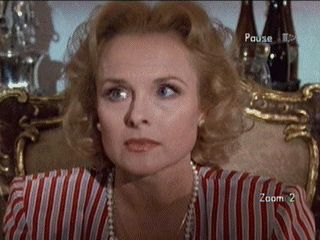

She is Scottish actor Ewan McGregor’s aunt through her marriage to Lawson, his uncle. ] By this time she had been diagnosed with cancer and had lost an eye as a result of surgery. While filming That Uncertain Feeling for BBC2 in 1985, she met actor Denis Lawson, who was to become her second husband. She had two daughters: the actresses Kay Curram and Lou Gish (1967–2006) by her first husband, the actor Roland Curram. She was born Sheila Anne Gash in Lincoln, Lincolnshire, studied at the Royal Academy of Dramatic Art, and made her stage debut with a repertory company. One of her last stage roles was as Arkadina in the Chichester Festival Theatre’s production of The Seagull in 2003. Gish received the Olivier Award for Best Supporting Role in a Musical for her performance., last accessed FebruIn 1999 she played Miss Venable in Tennessee Williams’s Suddenly Last Summer, directed by Sean Mathias with Rachel Weisz at the Comedy Theatre, London. In 1996, Gish played the role of Joanne in Stephen Sondheim’s Company at the Donmar Warehouse directed by Sam Mendes. She is also known for her appearance in the 1986 film Highlander as Rachel Ellenstein. She rarely appeared on film, her most notable performances being as Anna in the Merchant-Ivory film Quartet (1981) and as Mrs Norris in Jane Austen’s Mansfield Park (1999). She was an actress, known for Highlander (1986), Mansfield Park (1999) and Highlander: Endgame (2000). She continued to be best known for her stage work, but she also appeared in many television dramas, from The First Churchills (in which she played Mary of Modena) to the successful adaptation of Love in a Cold Climate (2001) in which she played the eccentric and outrageous Lady Montdore. Sheila Gish was born on Apin Lincoln, Lincolnshire, England as Sheila Anne Syme Gash. Her first starring role in the West End was as Bella in Robert and Elizabeth. If you would like to see the Concentric Circles production of Phaedra which runs until March 9 at the Riverside Studios please call the Box Office on 020 8237 1111.Sheila Gish (23 April 1942 – 9 March 2005) was a British stage and television actress. But I must say that after performances I do feel pretty drained!". Ever since I first encountered Tennessee Williams – and there are bits of Blanche DuBois in Phaedra – I realised I have a knack of playing people with fatal flaws. "I have done lots of these highly dramatic classical roles and doing them helps to hone your craft. If you see the technique it hasn’t worked. When performing it I think it is absolutely imperative that the metre and rhythms of the text are so that the narrative is crystal clear to an audience. While our translation by John Cairncross sticks faithfully to the spirit of the original – and that is wonderful – the original French is sublime and very concise. My French is poor but I did have the French with me which is so useful for punctuation and emphasis. Racine is a spare and blisteringly honest writer unlike his contemporary Corneille who is much more flowery. "As well as the raw emotions of the story the language is wonderful. Like Princess Diana she is in a marriage of state and she falls in love desperately for the first time in her life. She does not die out of a sense of shame.

When she poisons herself she is preparing to die not for what she has done but for what she feels. But as a character her honesty appeals to me together with her sense of duty and honour. "Phaedra is essentially a good woman who has fallen foul of her hormones (or of Venus depending on which way you want to look at it.) She verges on an appalling affliction which verges on paedophilia – after all the boy was very young. It is a difficult part because it is not quite a full-blood-let-rip sort of role such as Clytemnestra. This becomes jealousy when she learns that he loves another and then her already terrible situation is exacerbated by guilt when she learns of Hippolytus’s death by a sea monster. She has an all-consuming passion for her stepson Hippolytus which she believes was inflicted upon her by Venus. “Phaedra is one of the great roles – dramatic actresses from Rachel in the 1840s and Sarah Bernhardt in the 1870s have all done it. Here she talks about the role in the first production from a new company offering innovative productions of classical repertoire and starring established performers alongside promising newcomers. Studios she tackles one of the pinnacles of classical tragedy, the title role in Jean Racine's 1677 play Phaedra in which overwhelming passion and anguished love lead to her death.


 0 kommentar(er)
0 kommentar(er)
